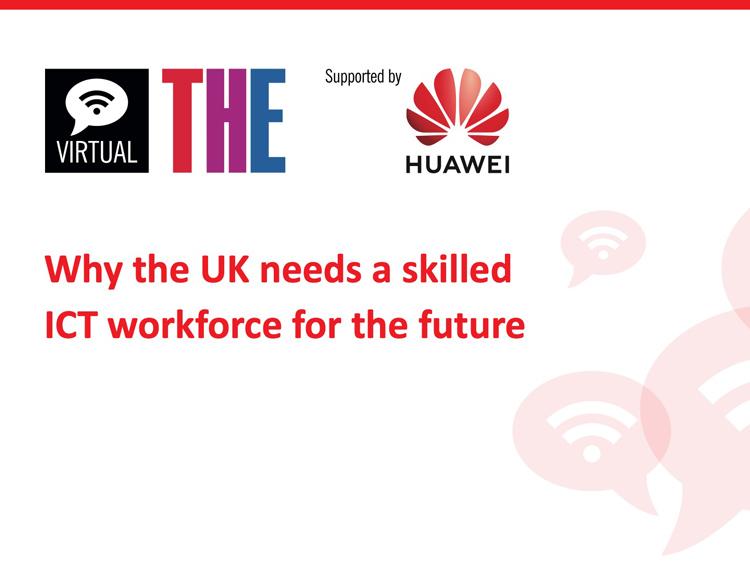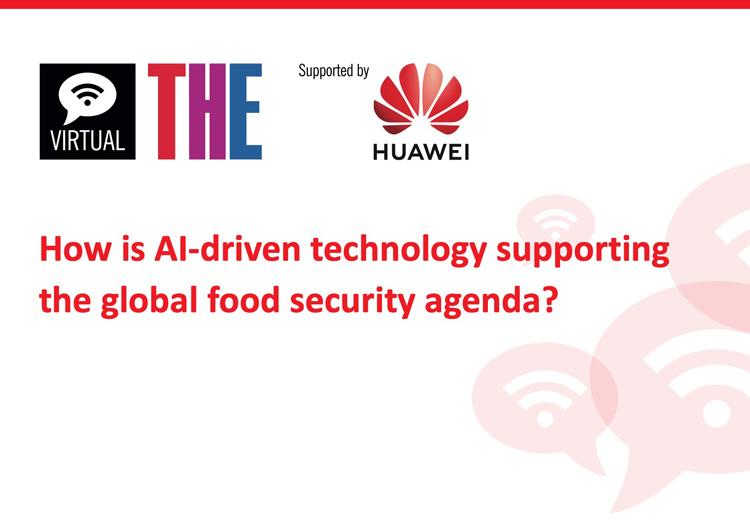
Skills must be reimagined and defined to deliver a digital-ready workforce
To create a skilled ICT workforce, academia is redefining digital skills, embedding digital in all programmes and working closely with industry


Huawei
Find out how Huawei is supporting the future of intelligent, digital education
Universities must define digital skills and then deliver them to their students, according to a panel of experts at a Times �й�AƬ round table held in partnership with Huawei.
At the event, titled “Why the UK needs a skilled ICT workforce for the future”, Richard Carruthers, deputy director of the careers service at Imperial College London, told the panel that he saw two distinct digital skills areas. The first was ICT operations, with roles in technical support particularly in demand after the move online due to the pandemic. Second, Carruthers identified interest in the “exciting” research-based side, such as machine learning and AI. He questioned whether this might leave the UK economy with a large number of support vacancies.
Laura Scanga, head of graduate employability at Roehampton University, spoke about preparing students for work. She referenced the World Economic Forum’s forecasted top 10 skills of 2025, including technology use, monitoring and control, and technology design and programming. Scanga said institutions must define, identify and map these skills in order to know whether they’re delivering them to students.
Mark Schofield, pan-university dean of learning and teaching at Edge Hill University, said digital skills must also include soft skills, such as understanding human behaviours in digital environments. Schofield also identified a chance for change. He said an emerging skill set and need was the ability to imagine how online environments could be reimagined to work better.
A reimagining of the very idea of digital skills was also needed, the panel agreed. Carruthers said Imperial planned to focus on digital competency because the word “skills” makes students home in on specifics, such as coding, rather than a broader proficiency. The assumption that young students were entirely competent in tech was also dismissed. Carruthers said many were wary of leaving a digital footprint and were unengaged with emerging technologies.
Harriet Dunbar-Morris, dean of learning and teaching at the University of Portsmouth, explained the “hallmarks of a Portsmouth graduate” scheme, created to ease the transition to the workplace. This set of attributes includes digital skills that employers expect graduates to have.
Students who chose to avoid STEM subjects might be resistant to digital, the panel heard. Dunbar-Morris said: “I think it’s about how we assess students’ competencies rather than skills. Get them to think about creating a website or a Padlet, and suddenly they’re using all sorts of digital skills that they didn’t know they had, because they’re thinking about their passion for their subjects and getting that message across.”
An awareness of the digital skills that employers demand was key, said Pallavi Malhotra, director of the Huawei talent alliance in Western Europe. “Academia needs to define what types of skills are required and to work more closely and collaboratively with industry,” Malhotra said.
Malhotra mentioned Huawei’s no-cost academy programme, which offers 260 courses that are regularly updated to meet the requirements of industry and adapt to emerging technologies. “It’s really very difficult for academics to keep up. So, if the material is already there, access it,” she advised.
The panel:
- Richard Carruthers, deputy director of the careers service, Imperial College London
- Harriet Dunbar-Morris, dean of learning and teaching, University of Portsmouth
- Julia Gilmore, branded content manager, Times �й�AƬ (chair)
- Pallavi Malhotra, director for Huawei talent alliance, Western Europe, Huawei
- Guy Mills, employment engagement adviser, Anglia Ruskin University
- Laura Scanga, head of graduate employability, Roehampton University
- Mark Schofield, pan-university dean of learning and teaching, Edge Hill University
- Iga Seczkowska, careers adviser, University of Buckingham
- Lucy E. Smith, researcher, University of Dundee
- Kimberley Warner, employability and careers adviser, Anglia Ruskin University
about Huawei and �й�AƬ.
